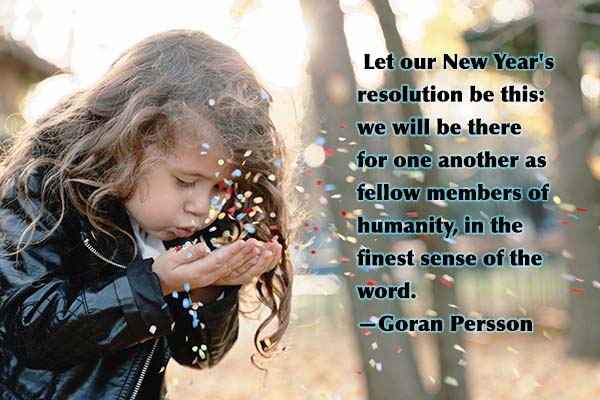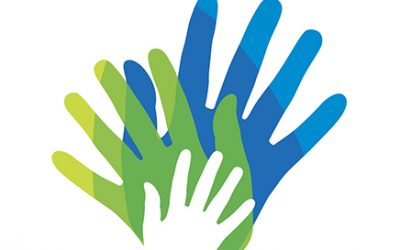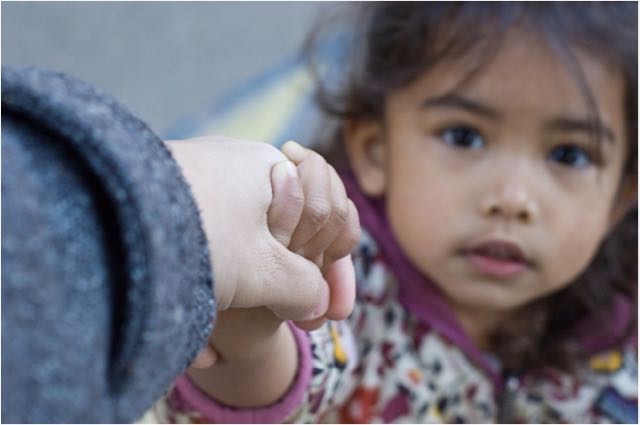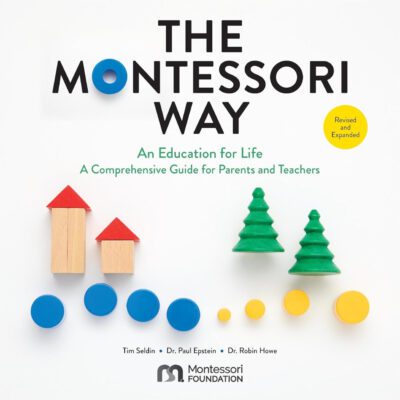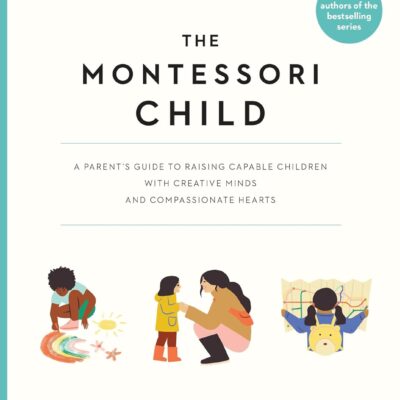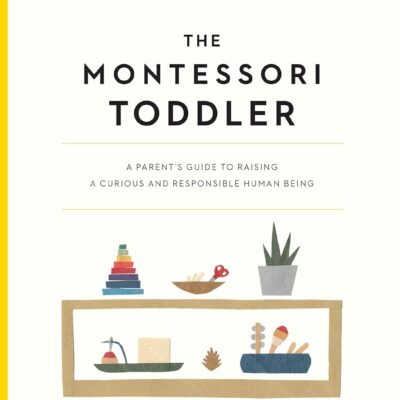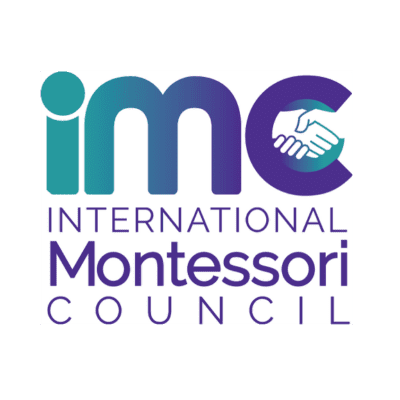Related Posts
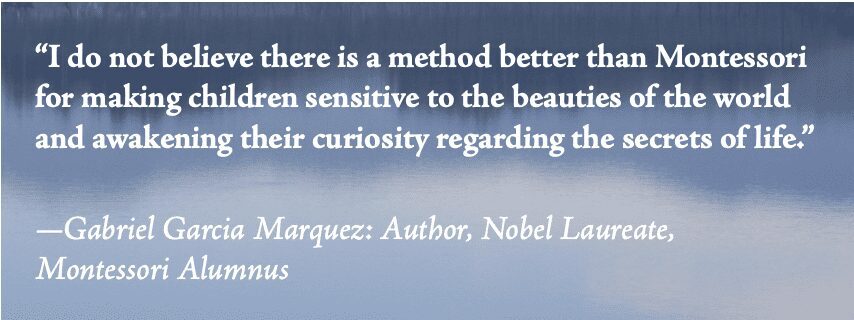
How do Montessori students succeed when they leave the Montessori environment?
Here are some interesting responses shared with us 30 years ago and some much more recently. It is fascinating to see how much their answers, given so many years ago, dovetail with what we hear today in Montessori schools worldwide.
David Kahn
Former Executive Director of the North American Montessori Teachers’ Association
Montessori is the real world! The Montessori classroom is very true to life. Children pursue their interests in the context of choice. Montessori children see their own growth and respond to their own needs.
Some say that Montessori classrooms are devoid of competition and, therefore, not part of the “real world.” Still, competition, like cooperation, is natural to life and thus emerges naturally in the Montessori classroom. There, children freely compare and contrast each other’s work. Montessorians are careful not to exploit the natural competition but to note how children build or lose self-esteem in relation to how they perceive themselves or others. And while the multi-age grouping softens comparison because of the variety of stages present in each classroom over a three-year age span, I would hardly consider the Montessori classroom a shelter from the real world.
They will learn tolerance and respect as modeled by the Montessori-trained teacher; they’ll learn about fairness, different approaches for different needs, and individuality in relation to group cooperation.
‘Success’ is in the eyes of the beholder; it is primarily formed privately, individually, and compassionately by the child and the family. Even the Montessori classroom cannot substitute for the parent’s faith in their child or the child’s faith in following their own star.
Nancy Rambusch, Ph.D.
The late founder of the American Montessori Society and one of the founders of the Montessori Foundation
Montessori education prepares children for the real world, but it allows children to meet themselves and the world in a particular way.
Both of my children, who had a Montessori education, have a quality of daring and competence in their own ability that has enabled them to approach new problems and challenges with appropriate confidence, great enthusiasm, and focus. This is one of the dispositional outcomes of Montessori, which has never been measured but is palpable in most parents’ experience.
Feland Meadows, Ph.D.
The late President of the Pan-American Montessori Society
We cannot prepare children specifically for a world that is yet to be. We live in a world of change. The only constant in our life is change. We have no way of knowing what the world will be like when they become adults because, between the time they are three and twenty, there will be so many changes that we cannot possibly foresee.
When teachers focus exclusively on the skills they will give children, they lose sight of the picture Montessori offered us. The whole concept of the Montessori classroom is a place where children can create themselves to their fullest potential. They are not just learning to write and read. They are developing themselves as individuals.
Two children came to me in the first grade at a school in Mexico City, where Montessori began in the 1960s. They both had been in Montessori from the time that they were three. They went on to a middle school run by a private organization with 1,000 students. They entered in September. In November, the children in that middle school elected their officers, and they elected one of these children president and the other treasurer.
Now, what a coincidence that two kids out of 1,000, who came out of a Montessori school, were chosen by their peers to be their leaders. Montessori is not designed to make you the best mathematician or anything in that sense. It is designed to help each person become the most complete human being she can be, and all those other things come along without them even having been the focus of our primary effort.
Elisabeth Coe, Ph.D.
Former President of the AMS & Director of the Houston Montessori Center
From my experiences with students who leave the programs and the feedback that I get from high schools and parents, they are academically pre- pared, but more than that, what I see is diversity. They are fearless in taking calculated risks on trying out for the play. They become student leaders directed towards activities like beginning a service project. The other feedback I get is that given a project, they know how to choose a topic and work it through until completion, while the other kids are still sitting around trying to figure out how to begin. They are self-starters and have the skills to break down and complete a task without total direction from teachers. In terms of college, the groups I’ve observed have been successful. Montessori students have learned to feel good about math and sciences. They enjoy it, and there’s no stigma attached to it. In other environments, there often is.
When those students who have been in Montessori for a long time take a learning preference test, they are in the middle because they have many options, modalities, and avenues. They also tend to be the outspoken ones. They are the ones that come up with the petitions or will take a stand on moral issues.
Joseph Purvis
Former Principal of the Hall School, Minneapolis
The answer to the question of whether or not Montessori prepares children for the real world depends on what we see as the real world. If the real world as we see it is that people interact well with each other and that we treat each other as a person, not as a statistic, then Montessori prepares them for the real world.
Suppose the real world is where we want people to think for themselves, figure out solutions, work in groups, and interact with other people peacefully. In that case, Montessori prepares them for it.
So we need to ask ourselves, “What type of real world do we want for the future?” and then prepare them for it. If it’s global peace that we’re looking for, then Montessori prepares children for it.
Alexandra Rambusch
Doctoral candidate and former Montessori student
Editor’s note: Keep in mind, Alexandra wrote this 30 years ago.
My experience with Montessori matched how I learn best. I recently applied to a doctoral program, and one of the things that they wanted us to talk about was to situate our experience and how we got to this point. The real pivotal experiences for me were my Montessori experiences and some college experiences because Montessori allows you to become an autonomous learner for the rest of your life. You carry it on the job and bring it into any other school setting. It permits you to select what you will do, begin it, complete it, and get closure in a way you are not allowed in many settings. It’s a very adult skill to develop.
Marc Seldin
Administrator of the Center for Guided Montessori Studies and former Montessori student
In a Montessori classroom, the student takes final responsibility for learning. Certainly, subjects are introduced by the teacher; undoubtedly, students will need and receive assistance from time to time, and their progress will be checked. But the majority of the work each student performs is done individually, and the drive to achieve comes from that individual. Montessori instills in children the belief that we should do excellent work because we want to, instead of the common practice of doing poor work because we can.
Frances Merenda
Barrie School 1990 – Sustainability Engineer
“I started in Montessori at age two. I’m a product of the entire system. I did well, but still, many people wondered if I had been prepared for college and whether I could ‘make it’ in a ‘real school?” The skepticism was so disconcerting that I never bothered to step back and see what 15 years of trust, respect, teaching, and learning had done for me. When I went off to Northwestern University, I left my support system and community behind and entered a world that was much colder and uncaring.
At first, I deeply missed that sense of belonging. I didn’t realize that Barrie had not only given me a second family but had also taught me how to build new friendships, support systems, and community wherever I go. I now use my years of experience in community building to cultivate secure relationships with people I have come to know.
Celma Perry
Former Director of the Training MECA-SETON Teacher Program (writing 30 years ago)
My daughter, Anna, started Montessori at two, discovering a world of respect. Montessori allowed my child to discover that she was a very important person, who was to be aware of the world and become a member of the bigger human community. Today, Anna is the Director of the MECA-SETON Teacher Program.
Ben Bogard
NewGate Montessori High School 2018 – Radio Frequency Engineer at SpaceX working on Starlink
I went to Montessori school from 18 months until first grade. I took a break for a couple of years and came running back as fast as possible to finish the rest of everything from third grade to high school. I graduated in 2018 with only three other seniors and then studied electrical engineering at Georgia Tech. I now live in Seattle and work for SpaceX, focused on Starlink radio communication systems.
I distinctly remember that we did a school project about barrier islands. We went out to the beach in Florida to take some measurements of the slope of the shore and what kind of sand and rock material there was. I had been watching videos on making flaky salt because I was interested in making salt, just curious about it. So I brought two big five-gallon water jugs to the beach with me and filled them with ocean water.
My teachers let me boil ocean water in the cafeteria kitchen over the next week to concentrate the water to make flaky salt. I still use that jar of salt. I was allowed to explore my interests. That curiosity led me to learn something you wouldn’t learn in a traditional school.
In addition, to a rigorous academic course of study. I earned the International Baccalaureate Diploma and got college credit for a large majority of the courses that I took in high school. I earned, overall, a 3.88 GPA in undergraduate electrical engineering at Georgia Tech, finishing in three and a half years. Only about 10 percent of students graduate in four years. Following our curiosity is separate from more traditional academics. It prepares us for the real world things that aren’t solving math equations, such as how do you fix your car when it breaks down?
I don’t have children yet, but people have begun asking me about my experience and if I recommend Montessori. I highly recommend it. Montessori does a great job from early childhood up to high school. Those higher-level programs are hard to find, but it’s worthwhile if you can find one. The style of learning is fascinating. I think back to when I was young, using the Pink Tower, the Bead Frame, and all of these very tangible materials.
From an engineer’s perspective, it’s nice to think back on it because that is what engineers do. We take something theoretical that exists as numbers and equations on paper and build a tangible system that represents that information. And that’s what Montessori has already done. They have designed materials that take these abstract concepts and put them into tangible formats.
Having that wide array of exposure, with a lot of emphasis on field trips and experiential learning, was a lot of fun and contained many life skills through being exposed to all these different environments and situations.
I always enjoy telling people that I came from Montessori, with a high school graduating class of four people, and, yes, I’m very successful in a technical field. There are no limitations. Montessori doesn’t limit you to one side of the spectrum in terms of STEM versus the arts; it does an outstanding job of teaching those skills that are required to solve problems and look for different ways to come up with a solution.
Brendan McGrath
Montessori schools in CT & FL 1987-1996 – BS
LEED Commissioner, Environmental Engineer
My connection and draw to environmental science was through math and Montessori. I don’t know how I would’ve turned out without Montessori being in my life. When I think about math and solve math problems, I can visualize those concepts in my head because the math materials and lessons make them so real.
I went to a Montessori school when I was very young. The whole experience is more like a background and foundational thing. Wanting to do something to make the world a little bit better or connect to the outdoor, natural environment didn’t come to me in a flash. It was a way of living in a community and developed over the years. I think it was just always there in the background. When it was time for me to decide what I would do, I thought, “If I have to work 40 hours a week, I better make it something good for the world.”
Braeden Allen
NewGate Montessori High School 2017, Environmental Science Graduate, currently teaching in Madrid
I started Montessori school when I was not quite three and living in Cape Cod. My Mom became a Montessori teacher while I attended the Sandwich Montessori School. When I was in upper elementary, we moved to Florida, where I attended the NewGate Montessori school through graduation. I was among the first group of people to earn the International Baccalaureate Diploma. Seven of us graduated that year. My first experience of a more traditional school was in college when I went to the University of Florida.
I have always loved animals and nature. I always read books about the jungle. As I grew up, I realized that I really liked science. I didn’t love math that much, and environmental science is a connection between loving nature, the environment, and science.
Did any experiences from my Montessori classes encourage my study of environmental science? I remember those long timelines with drawings of early humans and all the dinosaurs, prehistoric and geological eras that interested me. When I was in Montessori kindergarten, I remember that I would walk across the parking lot to the lower elementary building, and I was allowed to pick out chapter books. My reading level was ahead of my classmates, and I got to pick Magic Treehouse books.
Allowing me to pursue what interested me helped me follow the environmental science track. Deciding what to do with our lives has much in common with Montessori philosophies and values.
A benefit that I got from school was the social aspect. As I got older, I formed close connections with my classmates, teachers, and the whole community. It also influenced my path, because I learned that valuing my relationships was just as important as academic and professional skills.
Madhavi Sabnis
Barrie School 1996 – Marketing and Customer Support Coordinator at IndiSoft
Montessori teaching is the best way to learn! At Barrie, the teaching styles of Maria Montessori were prevalent from day one. The materials not only made the lessons easier to understand but also made me realize that self-motivated education and being more independent in thinking was the best way to learn and grow. Also, the ability to call your teacher by their first names made them more approachable and available, which made learning exciting and fun.
The idea is that a toddler, pre-teen, teenager, or high school student can develop strong learning skills at any level, which will help guide them in continuing their education in and outside the classroom.
After graduating from Barrie in June of 1996, I felt prepared for what lay ahead for me in college and the best way to approach the teaching styles of the professors during my bachelors at Muhlenberg College in Allentown, PA, and later, during my master’s program at Howard University in Washington, DC. In both experiences, from my first class until my last, I was able to think for myself, learn from my mistakes, and, most importantly, take away the crux of a Montessori education, which was being more independent and not always having to rely on others to solve issues.

